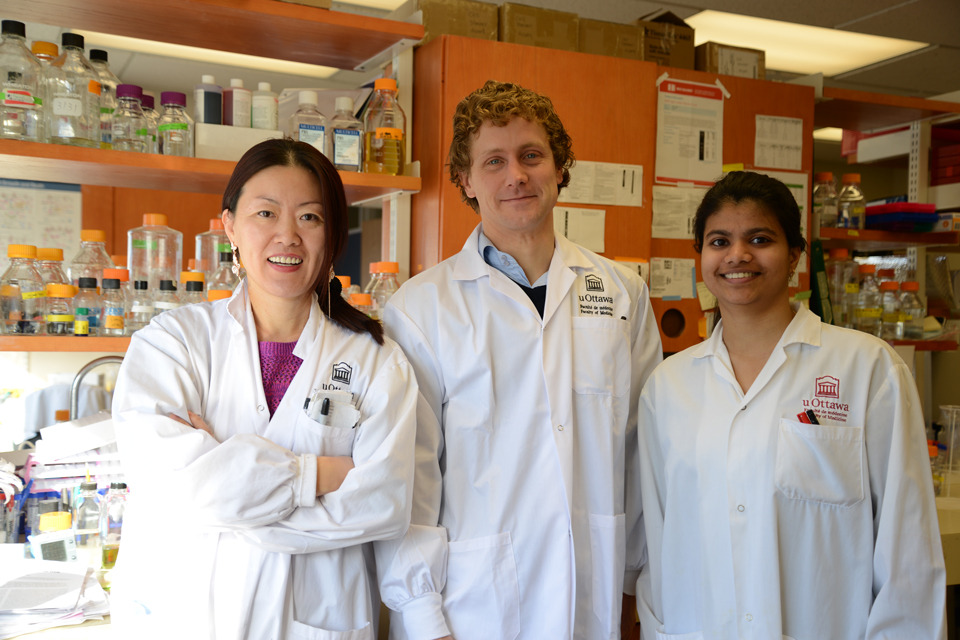Like many Canadians, Dr. Derrick Gibbings has known the loss of friends and relatives to cancer. Unlike most, however, he is in the unique position of being able to explore the disease in depth. His team’s recent research from the University of Ottawa demonstrates that when you know what’s going wrong, you can search for ways to fix it.
“It’s gratifying to work in cancer research,” he says. “In identifying the mechanisms that cause or worsen disease, we can work toward solving those problems.”
Dr. Gibbings is an assistant professor with the Department of Cellular and Molecular Medicine at the Faculty of Medicine. He and his team have identified a key trigger behind the spread of cancer results that were published this week in Developmental Cell, a top journal in cellular and molecular biology.
It is known that a particular set of genes play a role in cancer. Now, Gibbings’ team has detailed how exactly the genes trigger metastasis, or the spread of cancer cells, in a breast cancer model. They showed that the genes stimulate the production of exosomes, miniature bubbles released by cells that promote migration and metastasis of cancer cells. When the genes are deactivated, exosomes production decreases—as does the chance of the cancer spreading.
In addition, Gibbings’ team discovered that the production of exosomes is part of the autophagy pathway, a normal metabolic process in which the body recycles its own components. Because the autophagy pathway plays a major role in cancer, drug companies are already developing drugs to influence the pathway to treat the disease - and now they have more ammunition to work with thanks to Gibbings and his team.
“Our work is switching the focus of what people should look at when developing drugs to treat cancer,” says Dr. Gibbings. “We’ve provided further evidence that researchers should increasingly look at ways of stopping exosomes as a means of preventing the spread of cancer.”
Given the recent revelation of the autophagy pathway’s role in cancer, Dr. Gibbings feels their conclusions could be relevant for other cancers as well. The team is thrilled to share their discoveries and to open doors for new research and treatment potential.
“The work has been a group effort with collaborators at The Ottawa Hospital and in France as well,” he says, crediting first author Huishan Guo and PhD student Maneka Chitiprolu among the paper’s many contributors.
“We are excited to finally see this work move into the public domain after two to three years of hard work.”
Photo credit: Derrick Gibbings lab.

